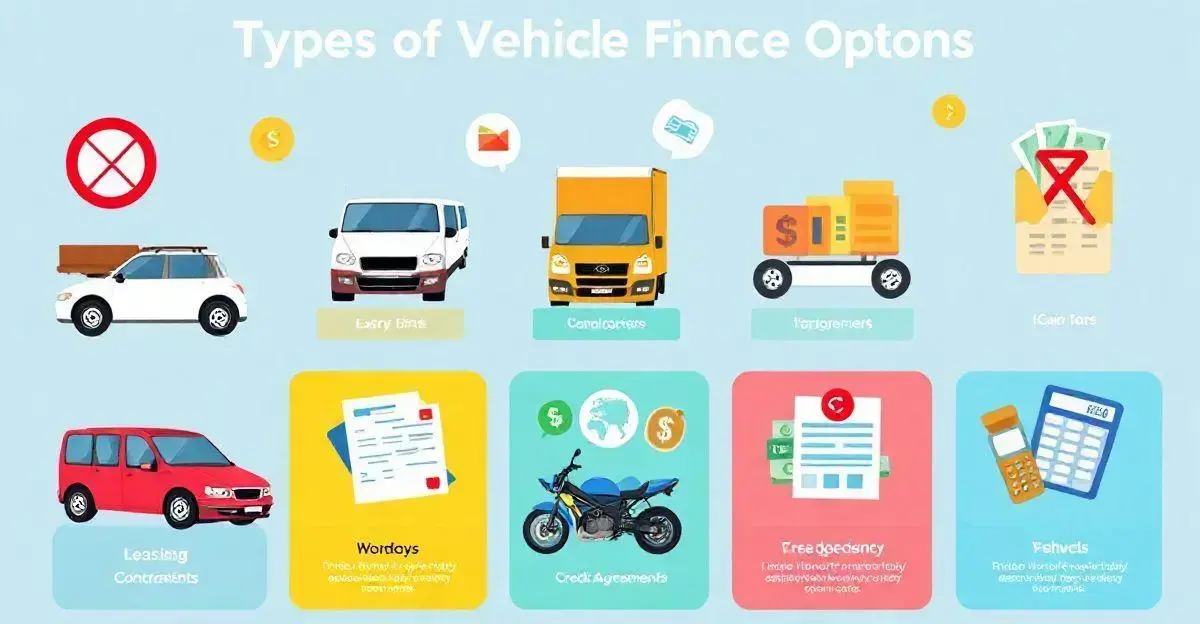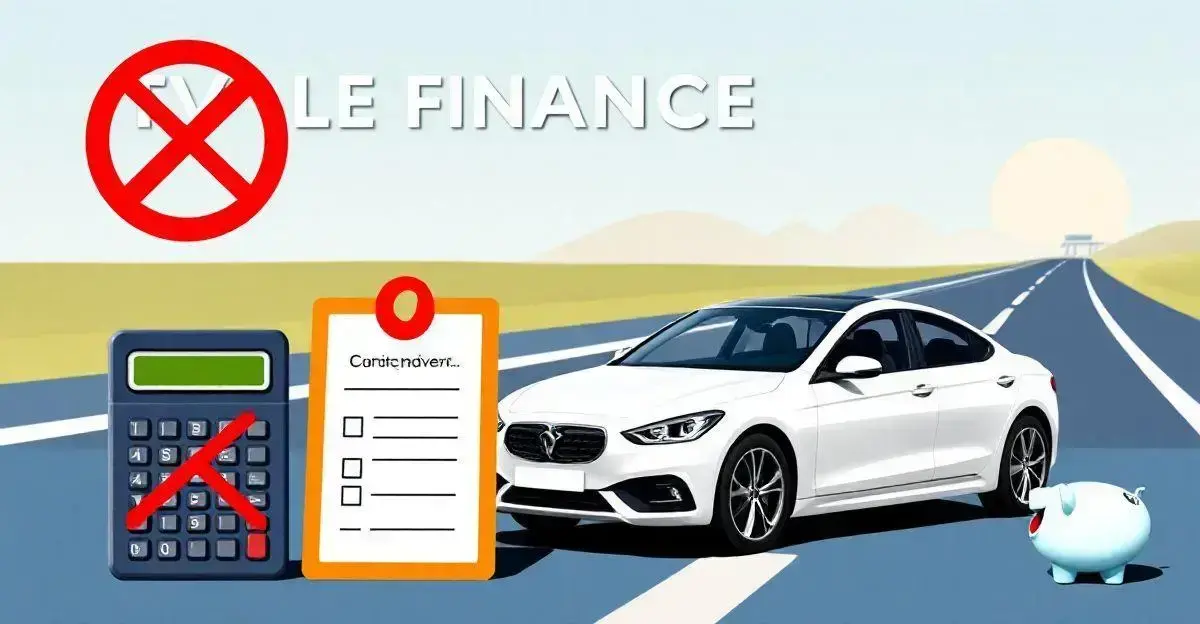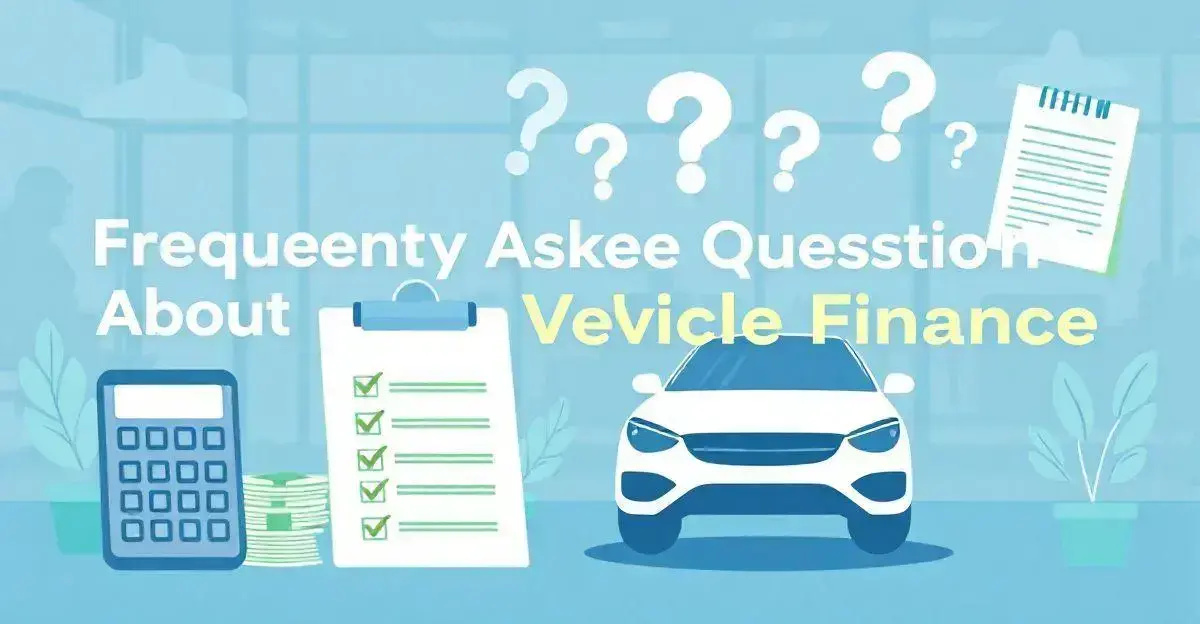Vehicle finance plays a crucial role in enabling individuals to purchase their dream cars without financial strain. In today’s economy, understanding the various vehicle finance options available is essential for making informed decisions.
Understanding Vehicle Finance Basics
Understanding the basics of vehicle finance is essential for anyone looking to purchase a car. Vehicle finance enables you to spread the cost of the car over a set period, making ownership more affordable.
There are various vehicle finance options, including personal loans, hire purchase agreements, and leasing.
A personal loan allows you to borrow the money needed to buy a car outright, which you repay through monthly installments. A hire purchase agreement, on the other hand, requires an initial deposit, followed by fixed monthly payments; once the term ends, you fully own the car. Leasing is like renting a vehicle for a predetermined period, after which you return it to the dealer.
Before choosing a vehicle finance option, it’s crucial to assess your financial situation. Consider factors such as your credit score, monthly budget, and how long you plan to keep the car.
Understanding the terms and conditions of each option will help you avoid unexpected costs and make the best choice for your needs.
Types of Vehicle Finance Options

When exploring types of vehicle finance options, it’s crucial to understand the major categories available to consumers. Each option comes with its own set of advantages and considerations.
One of the most common options is hire purchase. This is where you pay an initial deposit, followed by fixed monthly payments. After completing all payments, you own the vehicle. It’s ideal for those who wish to eventually own their car and often comes with lower interest rates compared to personal loans.
Personal loans are another popular choice, where you borrow from a bank or financial institution and use the funds to buy a car outright. You then repay the loan in monthly installments. This is a flexible option because you have complete ownership from the start, and you can choose the car you want.
Leasing is more like renting, where you make monthly payments to use the vehicle for a predetermined time. At the end of the lease, you return the car. Leasing often has lower monthly payments and may include maintenance costs, making it a suitable option for those who prefer to drive newer models without long-term commitment.
Additionally, considering insurance is essential when choosing one of these options. Insurance protects against potential financial risks in case of accidents or damage to the vehicle, providing peace of mind and financial security.
Lastly, there’s novated leasing, particularly popular among employees. This involves an agreement between you, your employer, and a financing company. The employer makes the lease payments, often deducting them from your pre-tax income, which can provide tax advantages.
Each of these vehicle finance options has unique benefits that cater to different financial situations, making it essential to assess your needs carefully.
How to Choose the Right Vehicle Finance Plan
Choosing the right vehicle finance plan can greatly influence your car ownership experience.
To start, assess your budget and determine how much you can afford to pay monthly without straining your finances. This first step is crucial for ensuring that payments fit comfortably within your overall financial plan.
Next, consider the different types of vehicle finance options available. Each option comes with its pros and cons. For example, if you wish to own the vehicle at the end of the term, a hire purchase agreement might be the best fit. This allows you to pay in instalments while eventually owning the vehicle outright.
If you prefer lower monthly payments and don’t mind returning the vehicle at the end of a contract, opt for leasing. This option provides the flexibility of driving newer models more frequently, but you must adhere to mileage limits and maintain the car in good condition.
Additionally, understanding your credit score can help you secure better rates on loans or finance agreements. A higher credit score often leads to lower interest rates, making your vehicle finance plan more affordable.
Lastly, read the fine print. Look for any hidden fees in the agreement, such as early repayment fees or penalties for exceeding mileage in a lease. By being fully aware of the terms and conditions, you can choose the right vehicle finance plan tailored to your needs and financial goals.
Common Misconceptions About Vehicle Finance

When considering vehicle finance, many people hold misconceptions that can affect their choices. One common myth is that financing a vehicle is always more expensive than buying it outright. While this can be true in some cases, financing options often provide lower initial costs and manageable payments over time, making it more affordable for many buyers.
Another misconception is that you need perfect credit to secure vehicle finance. While a better credit score can result in lower interest rates, many lenders offer financing options for individuals with varied credit histories. Understanding your credit situation can help you find suitable lenders willing to work with your profile.
Some also believe that vehicle finance agreements are overly complicated. In reality, most financing options have straightforward terms and conditions. Taking the time to read and understand these agreements is essential. Always ask questions if something is unclear.
Additionally, many assume that once you choose a finance option, it cannot be changed. However, you can refinance your vehicle loan if you find a better rate or your financial situation changes.
Lastly, people often think that all vehicle finance plans are the same. In reality, various plans offer different benefits, such as cashback, lower interest rates, or flexible repayment periods. Comparing different options is key to finding a plan that suits your lifestyle and financial situation.
Impact of Credit Score on Vehicle Finance
The impact of credit score on vehicle finance is significant and often underestimated. A credit score is a number that reflects your creditworthiness, which lenders use to evaluate the risk of lending you money. The higher your score, the more likely you are to qualify for favourable financing terms.
Individuals with high credit scores often receive lower interest rates, leading to considerable savings.
An example of this is that a difference of just a few percentage points can amount to hundreds of rand in interest payments.
On the other hand, those with low credit scores may face challenges in securing financing. Some lenders refuse applications, while others offer loans with higher interest rates and unfavourable terms.
However, many lenders specialize in high-risk loans for individuals with poor credit histories.
To improve your credit score, consider the following tips:
- Pay down existing debts.
- Ensure that payments are made on time.
- Regularly check credit report for inaccuracies.
Tips for Securing the Best Vehicle Finance Deals

Securing the best vehicle finance deals can save you money and stress. Start by researching different lenders and their offerings. Don’t settle for the first deal you find. Compare rates, fees, and terms from various sources to get the best understanding of what is available.
Make sure to use reputable financial institutions, as they often provide better rates and customer service.
Another tip is to check your credit score before applying. A higher credit score can lead to lower interest rates, which reduces the total cost of financing. Aim to improve your score by paying down debts and making timely payments.
When you receive offers, read the fine print carefully. Look for hidden fees, such as processing fees or early settlement charges, that could add to your overall costs. Understanding all the terms ensures that you won’t face unwanted surprises later on.
Finally, don’t hesitate to negotiate. Lenders are often willing to adjust terms to get your business. Just remember to be polite and present your case clearly when discussing potential changes to your offer.
Following these tips can help you secure a better vehicle finance deal and make your car ownership journey more affordable.
The Future of Vehicle Finance and Technology
The future of vehicle finance and technology looks promising and exciting. As technology evolves, so do the ways in which consumers can finance their vehicles. One major trend is the integration of digital platforms that simplify the loan application process. Now, prospective buyers can apply online with just a few clicks, making it easier to compare different deals and lenders.
Another emerging technology is the use of blockchain in vehicle financing. Blockchain allows for secure and transparent transactions, reducing fraud and ensuring that records are accurate. This can lead to greater trust between lenders and borrowers, as well as lower costs.
Moreover, artificial intelligence (AI) is paving the way for smarter financing options. Lenders can use AI algorithms to assess risk more accurately, leading to better offers for consumers. These smart systems can also provide personalized advice, helping buyers find the best financing solutions based on their unique financial situations.
Furthermore, the rise of electric vehicles (EVs) is influencing vehicle finance as well. As more consumers opt for EVs, financial providers are designing loans specifically for these vehicles, often with incentives that promote sustainable choices.
In summary, the future of vehicle finance is set to be driven by technology that enhances the experience for consumers, making financing more accessible, affordable, and tailored to individual needs.
Frequently Asked Questions About Vehicle Finance

Common types of vehicle finance include personal loans, hire purchase agreements, and leasing options, each with unique pros and cons.
A higher credit score generally leads to lower interest rates, making financing cheaper. Those with lower scores may still secure loans through specialised lenders.
Yes, you can pay off your vehicle finance early, but check for any early repayment penalties that may apply.
Shopping around, comparing rates from different lenders, and understanding the terms of each offer can help you find the best vehicle finance deals.
Typically, you will need proof of identity, proof of income, details about the vehicle, and your credit history to get started.
Making Informed Choices in Vehicle Finance for a Smooth Purchase Experience
In summary, understanding vehicle finance is crucial for making informed decisions when purchasing a car. With various options such as personal loans, hire purchase, and leasing available, each has its benefits and drawbacks that should be carefully considered.
Your credit score plays a significant role in securing favourable terms, so it is important to check and manage it ahead of time. Additionally, being aware of common misconceptions can help you navigate the finance landscape with confidence.
As technology continues to advance, the future of vehicle finance looks brighter, providing more opportunities and options for consumers.
By following practical tips and staying informed, you can secure the best possible deal, making your vehicle finance experience as smooth and affordable as possible.
